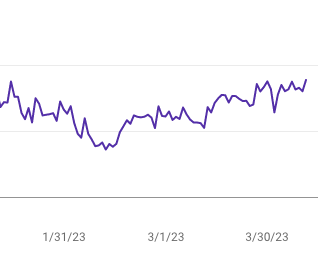As Google continues to refine its search algorithms through core updates, it’s essential for website owners to stay informed and adapt their strategies to maintain or improve their rankings. In this article, we’ve compiled a comprehensive list of 30 actionable tips to help you navigate the challenges of a core update and boost your Google rankings. By following these suggestions, you can ensure your website is optimized for both user experience and search engine performance.
We have successfully implemented these tips to recover lost rankings after the latest Google Core Update in December 2023.

By applying these strategies, we were able not only to regain our rankings but also to surpass the positions we held before the update. By combining high-quality content, technical optimizations, and an improved user experience, we have increased our website traffic, visibility, and overall performance. This comprehensive approach to SEO has proven highly effective in achieving success after a core update and maintaining positive results in the long run.
Maximize Your SEO Performance: 30 Proven Strategies for Navigating Google Core Updates
- Analyze the impact of the core update: Check your website’s traffic, rankings, and overall performance to determine if the core update has affected your site.
- Review Google’s guidelines: Familiarize yourself with Google’s Webmaster Guidelines and Search Quality Evaluator Guidelines to ensure your website complies with Google’s recommendations.
- Focus on high-quality content: Publish well-researched, valuable, and unique content that provides information or solves problems for your target audience.
- Improve user experience (UX): Make sure your website is easy to navigate, loads quickly, and is mobile-friendly. These factors contribute to a better user experience and can improve your site’s rankings.
- Optimize on-page SEO: Ensure that your title tags, meta descriptions, header tags, and image alt tags are properly optimized with relevant keywords.
- Address technical SEO issues: Fix any broken links, duplicate content, or issues with your site’s structure that could negatively impact your site’s rankings.
- Build high-quality backlinks: Reach out to authoritative websites in your industry and offer valuable content that they may want to link to, increasing your site’s credibility and trustworthiness in the eyes of search engines.
- Monitor your site’s performance: Keep track of your website’s performance using tools like Google Analytics, Google Search Console, and third-party SEO tools. Make data-driven decisions to continually improve your site’s rankings.
- Triple the number of WordPress categories, add them to the main navigation and index them. This creates more natural topical hubs, even though these category pages may not rank or receive much traffic.
- Add new subcategories to deepen breadcrumbs for many articles.
- Create an “Ask the Expert” section and populate it with in-depth answers to common questions.
- Create a “Contributors” page that lists the names, bios, social links, and pictures of industry experts who contribute to the site.
- Reduce publishing frequency to focus on improving existing content that Google may not favour as much.
- Add more content to existing articles, anywhere from 10% to 100% more.
- Add jump links within articles to help readers access the best parts faster.
- Remove fluffy content from articles.
- Experiment with different title tag styles to stand out.
- Increase image sizes (at least 1200px wide).
- Interview more industry experts and include their answers within articles.
- Add words and phrases that articles are ranking for in Google, as reported by GSC, and use them as anchor text for internal links.
- Change the “person” language from 1st and 3rd person to 2nd.
- Use Grammarly Premium to improve grammar and achieve a near-perfect score.
- Make subheadings (H2s and H3s) more unique compared to the competition.
- Move the most helpful content to the top of the article.
- Use more descriptive words when talking about an entity, avoiding the overuse of the word “this.”
- Make some articles more in-depth by addressing common questions, and factors to consider, and providing expert advice on the topic.
- Pay an expert to answer HARO queries and gain backlinks and mentions (although this may have limited results for a small niche).
- Pay an expert to answer niche questions on Quora and Reddit every weekday.
- Engage on social media: Share your content on social media platforms to increase visibility and drive traffic to your site.
- Stay informed about future core updates: Subscribe to SEO blogs, forums, and newsletters to stay up-to-date on future core updates and how they might affect your website’s rankings. This way, you can be proactive in implementing necessary changes.
Summary:
Improving your Google rankings after a core update requires a multi-faceted approach that addresses content quality, user experience, on-page and technical SEO, backlinks, and ongoing monitoring of your website’s performance. By implementing these 30 actionable tips, you can stay ahead of the curve and ensure your website remains competitive in search results. Remember to stay informed about future core updates and adjust your strategies as needed to maintain your website’s visibility and traffic.
Check out our article about how to conduct a content audit in 2023.
[ninja_form id=5]

